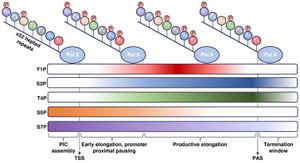New South Wales Transport Minister Jo Haylen is facing backlash after using taxpayer-funded transport for what was categorized as personal leisure over the Australia Day weekend. The trip, marked by controversy, involved Haylen and Housing and Mental Health Minister Rose Jackson traveling from Sydney to the Transport Minister's holiday home at Caves Beach, followed by subsequent visits to the Hunter Valley.
On January 25, the day before Australia Day, the government dispatched a ministerial driver who undertook what began as nearly 14 hours of travel, covering approximately 446 kilometers. The Sydney-to-Caves Beach excursion has drawn criticism, not just for the extensive use of public resources, but also for being deemed unnecessary and extravagant by opposition politicians.
Leader of the Opposition Mark Speakman was quick to condemn Haylen’s actions, declaring, "Now they’ve been caught, Minister Haylen said she’ll ‘pay it back’—that’s not accountability, that's an admission of guilt.” Speakman underscored the impression of entitlement this incident conveys, asserting, "NSW taxpayers are under massive financial pressure, but the Transport Minister treats public money like her personal Uber account." He demanded accountability from Haylen, emphasizing the necessity for both her resignation and the resignation of her colleague Jackson.
Similarly, Acting Shadow Minister for Transport Damien Tudehope stated, "They didn’t just rort the system—they endangered a government worker. A 13-hour drive is reckless and unacceptable." This pointed critique encapsulated concerns over safety and the appropriate use of resources, as the government driver was obligated to endure the strenuous long-distance travel for the ministers’ convenience.
The public outrage intensified after it was revealed Haylen recognized the trip's questionable nature. "I made the wrong decision," she remarked, confirming her intention to repay the $750 cost incurred for the trip. She also noted, “Cars and drivers may be used for official and private purposes as is stated within the official guidelines,” hinting at the belief she acted within the limits of existing policy, yet acknowledging broader public discontent.
This incident parallels previous cases where politicians have misused their transport privileges, such as former parliamentarian Bronwyn Bishop's infamous charter flight scandal, signaling persistent issues with transportation guidelines across political offices. Critics argue these episodes highlight systemic flaws within the ministerial guidelines, which ostensibly allow both public and private usage of government vehicles.
Despite Haylen’s admission of wrongdoing, Premier Chris Minns described her use of the ministerial vehicle as "clearly unacceptable" and has ordered the NSW Cabinet Office to conduct a review of the transportation guidelines to prevent similar mishaps from occurring again. He stressed, "It’s not on for drivers to be used in this way." This move is likely aimed at restoring public trust and ensuring accountability among cabinet members.
The logbook from the trip records indicate the day started at 8 am and concluded at 8:50 pm, coded misleadingly as a “business trip during working day.” After arriving at Haylen’s holiday home, the driver took the ministers to Brokenwood Estate Winery for lunch—adding weight to the argument of misuse. The setting is known for its prestigious dining experience, with set menus priced at around $105 per person before wines.
While government sources maintain no policies were actually breached, the optics of Haylen’s indulgence during times when regular NSW families struggle with rising costs paint a starkly different picture. With many residents grappling with soaring rents and living expenses, the timing of such misuse has been widely perceived as out of touch with the everyday struggles faced by constituents.
This situation raises pressing questions about the standards expected from public officials and the urgent need for reform in how transportation is utilized across government. With public sentiment increasingly wary of entitlement, the pressure on the NSW Government to promote accountability and reform is mounting.
Moving forward, NSW authorities face the challenge of addressing not just the ramifications of this specific incident but also the broader narrative about accountability within their ranks. How the Minns government reacts to this situation may significantly impact its credibility and public support going forward.



